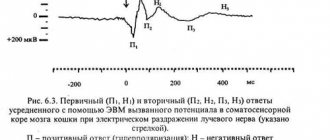What is psychology
Psychology is the science of all human mental processes. This science pays special attention to the relationships between people and to the person himself.
The first mentions of psychology date back to the 4th century BC, and to this day it continues to develop and be replenished with new laws, methods and solutions. There are 2 types of psychology:
- Academic.
- Applied.
Psychology methods are also divided into two large groups:
- Empirical: collection and interpretation of available facts, statistical analysis of data and search for patterns.
- Experimental: artificial simulation of various situations for research purposes.
The following are used to collect data:
- observation;
- introspection;
- interview;
- experiment;
- survey;
- testing;
- biographical research.
One of the significant and unsolved problems of psychology is the problem of the objective method.
The main methods of psychology can be divided into two groups:
Subjective methods of psychology (observation, survey) - these research methods are based on personal feelings in relation to the object being studied. After the separation of psychology into a separate science, subjective research methods received priority development. Currently, these methods continue to be used, and some are even improved. Subjective methods have a number of disadvantages, which include the difficulty of an unbiased assessment of the object under study.
Objective methods of psychology (tests, experiment) - these research methods differ from subjective ones in that the object under study is assessed by outside observers, which allows one to obtain the most reliable information.
History of the discovery of the method
The entire history of the development of psychology is a constant search for means for an objective study of mental function.
The first time the possibility of an objective method was presented in the peculiar movement of “behaviorism” was by psychologist John Watson . He recognized observation and experiment as methods that made it possible to study mental function.
The objective method was based on the rules of scientific observation characteristic of the classical ideal of scientific rationality. After the advent of behaviorism, the first tests appeared, attempts to experimentally create a method.
At the beginning of the 20th century, psychologists sought to combine behaviorism and psychoanalysis, and thus the theory of frustration-aggression by N. Miller and J. Dollard . Theories were created as the basis for a method by which the psychological reality of man could be studied from an objective point of view.
Methodological analysis
In the process of solving this problem, methodological analysis . Psychologist A.F. Lazursky discovered the method of natural experiment, which has the unique properties of avoiding the disadvantages of a laboratory experiment and at the same time implementing a scientific approach to the study of the entire structure of the psyche.
Domestic psychologists were strongly influenced by the ideas of Karl Marx . They became a kind of ideology, and under their influence new directions in psychology began to appear for the objective study of the structure of the psyche: reactology by K. N. Kornilov and reflexology by V. M. Bekhterev. L. S. Vygotsky was the first to identify and apply the method of reflexological research.
After these events, domestic psychology was divided into several different directions. One of the directions was Vygotsky’s further study of reflexological research. Another direction is the study of the dynamic location of mental processes by psychologist A.R. Luria.
The search for an objective method for studying psychological phenomena has been undertaken by numerous directions and schools of psychology. It continues today. Sciences such as neurophysiology, psychophysiology and psychophysics help in the search. But a final answer to the problem has not yet been received.
Objective methods of psychology
The main research methods in psychology - as in natural science in general - are observation and experiment. In psychology, each of these general methods appears in different forms; There are different types of observation and experiment. Specific research methods in psychology include methods of testing, surveys, and analysis of activity products. Methods of mathematical modeling, statistical analysis , etc. have also found wide application in psychology
The observation method is an intentional, systematic and purposeful perception of a person’s external behavior for the purpose of its subsequent analysis and explanation. Objective observation in psychology is aimed not at external actions in themselves, but at their psychological content; here the external side of activity is only the initial material of observation, which must receive its psychological interpretation and be comprehended within the framework of a certain theory.
The success of observation and explanation of its results ultimately depends on the state of knowledge in the field under study. Based on a certain understanding of the nature of the phenomenon under study, a hypothesis is put forward about its dependence on specific factors and their manifestation in external behavior. The hypothesis is tested during observation and can be confirmed, clarified, or refuted. “Objective observation becomes scientifically fruitful insofar as it is associated with the establishment and testing of hypotheses”56.
Observation as a scientific method must meet a number of requirements. It must be selective, i.e. proceed from a clearly defined goal, highlight a certain fragment of the reality being studied. Observation must be planned and systematic, i.e. be built on the basis of a plan and carried out over a certain period of time. It is important to record the behavior being studied in as much detail as possible, i.e. complete is necessary .
56Rubinshtein S.L
Fundamentals of general psychology: In 2 vols. M., 1989. T.1. P.55.
The objectivity of the observation method increases if the researcher uses technical means, such as a video recorder. In such an observation, the researcher takes a completely outside position, or even completely removes himself from the situation. It is no coincidence that the ideal version of the observation method in psychology was considered to be observation using a “Gesell mirror”, transmitting light in one direction: the researcher could see everything that was happening while remaining invisible. A similar effect can be achieved using a VCR. In other words, a special task is set to achieve the effect of the absence of the researcher, to make sure that the subjects do not know that they are being observed, and behave naturally, as under normal conditions.
The fundamental difficulty of objective observation in psychology is associated with the unambiguity of understanding, interpretation, and explanation of external factors of behavior in psychological concepts. The results of observation are significantly affected by the level of experience and qualifications of the observer. In other words, external observation can be objective in relation to the systematic and complete recording of behavioral facts, but subjective in their psychological interpretation. This difficulty can be overcome by using other objective methods of psychology.
In pedagogical practice, the teacher rarely uses the method of external observation in its pure form. Pedagogical activity excludes an outside position, the position of an impartial, objective and disinterested observer. At the same time, in the process of activity, the teacher notices certain features of the behavior of schoolchildren, and by external manifestations judges the psychological reasons, the emotional state, the peculiarities of perception and understanding of the material, difficulties, etc. The desire to record the psychological characteristics of students during activities, try to comprehend them, and use them in their work leads to the formation of an important professional quality in the teacher - observation.
The experimental method is the main method of explanatory psychology. Let us recall that psychology acquired the status of an independent science simultaneously with the experimental method. The main task of a psychological experiment, like observation, is to make accessible or objective external perception the essential features of the internal mental process. But experiment differs from observation in a number of features.
S.L. Rubinstein identifies four main features of the experiment. Firstly,
in an experiment,
the researcher himself causes the phenomenon he is studying, in contrast to observation, in which the observer cannot actively intervene in the situation. Secondly,
the experimenter can
vary, change the conditions for the occurrence and manifestation of the process being studied. Thirdly,
in an experiment
it is possible to alternately exclude individual conditions (variables) in order to establish natural connections that determine the process being studied. Fourthly,
the experiment also allows one to vary the quantitative ratio of the conditions and
allows for mathematical processing of the data obtained in the study 57 .
There are three types of psychological experiments: laboratory, natural and formative (psychological-pedagogical).
A laboratory psychological experiment takes place in specially created and controlled conditions, usually using special equipment and instruments. The initial object of a laboratory experiment in psychology was elementary mental processes: sensations, perceptions, reaction speed. A distinctive feature of the experiment in the laboratory is strict adherence to the research conditions and the accuracy of the data obtained. Cognitive psychology, which studies human cognitive processes, has achieved great perfection in the use of laboratory experiments. Cognitive processes have constituted a major area of laboratory research in human psychology.
The scientific objectivity and practical significance of the data obtained in a laboratory experiment is reduced by the artificiality of the conditions created. This is due both to the remoteness of the problems solved in the experiment from the real life conditions of the subject, and to the impossibility of recording the nature of the experimenter’s influence on the subject during the study. Therefore, the problem arises of transferring the data obtained in the laboratory to the real conditions of human life. In other words, does the experimental situation model the essential conditions of human life? This question always remains open in laboratory psychological research. Using a laboratory experiment in real teaching
57Rubinshtein S L
Fundamentals of General Psychology V 2 t M, 1989 T 1, P 57.
logical activity, due to its artificiality, abstractness, and labor-intensive nature, is actually not practiced.
| A.F. Lazursky (1874–1917) - Russian doctor and psychologist, developed “characterology” - a psychological concept of individual differences and built a system of classification of personalities (“General and Experimental Psychology”, 1912). |
A natural psychological experiment removes the noted limitations of a laboratory experiment. The idea of conducting a psychological experiment in natural conditions of human life belongs to the domestic psychologist A. FLazursky. The natural experiment grew out of teaching practice; here he is half-
gained recognition and widespread use.
Its main difference lies in the combination of experimental research with the naturalness of the conditions. The researcher’s influence on the subjects, based on a preliminary assumption (hypothesis) about his character, is carried out in the usual conditions of activity or behavior. Subjects participating in a natural experiment are unaware that they are being tested.
Pedagogical practice provides great opportunities for the use of natural experiment. Real pedagogical activity is carried out, as a rule, in several parallels and is cyclical. The teacher can vary the content, methods, forms, and techniques of teaching in different classes and study the nature of the influence of these changes on the characteristics of students’ assimilation of the material, on the pace of progress in studying the subject, on the characteristics of understanding, memorization, emotional attitude of students to what they are studying, etc.
An experiment in natural conditions of the pedagogical process is combined with observation of the progress and results of its course. The combination of experiment and observation under teaching conditions gives good results for the psychological study of schoolchildren.
The famous psychologist S. L. Rubinstein wrote: “We study the child by teaching him. For this purpose, we do not abandon experimentation in favor of observing the pedagogical process, but introduce elements of pedagogical influence into the experiment itself, building the study according to the type of experimental lesson. When teaching a child, we do not strive to fix the stage or level at which the child is, but to help him move from this stage to the next higher stage. In this advancement, we study the patterns of development | child's psyche"58
58Rubinshtein S.L.
Fundamentals of general psychology V 2 t M, 1989. T.1, P 61
It can be assumed that the use of natural experiment opportunities by teachers contributes to the rapid growth of their professional skills, the formation of pedagogical thinking, and fosters a creative attitude towards their activities. Well-known innovative teachers in our country - Sh.A. Amonashvili, I.P. Volkov, I.P. Ivanov, E.N. Ilyin, S.N. Lysenkova, V.F. Shatalov and others - have achieved significant success in teaching and educating schoolchildren thanks to creative experimentation in everyday work conditions.
Formative experiment –
This is a method for studying the mental development of children in the conditions of a specially organized experimental pedagogical process. The essence of this experiment is manifested in its names: transformative, creative, educational, educational, psychological-pedagogical, method of active formation of the psyche, genetic modeling.
The researcher is not limited to studying the existing forms of the psyche, recording and explaining the mental development achieved by students, which is typical for a ascertaining (laboratory) experiment. Based on a preliminary theoretical analysis of the patterns of mental development of children of a certain age or the conditions and nature of the formation of the most important human abilities, a hypothetical model of the formation of the studied abilities is constructed in specially designed conditions, as a rule, in experimental classes or schools.
The implementation of the developed model is carefully monitored and assessed by specialists of various profiles - teachers, psychologists, methodologists, doctors, etc. During the experiment, patterns, mechanisms, dynamics, and trends in the mental development of schoolchildren are revealed. The results of the experiment make it possible to confirm, clarify or refute the previously developed model of the development of the ability being studied.
| P.Ya. Galperin (1902-1988) - domestic psychologist, student of L.S. Vygotsky, creator of the theory of the gradual formation of mental actions |
In a formative experiment, the pedagogical process itself becomes experimental
In
psychological experimental research, new forms of the teaching and educational process are searched for and designed, a kind of “cultivation” of productive forms of cooperation between teachers and schoolchildren is carried out, and at the same time, promising paths
of mental development are studied at a certain age stage.
| D.B. Elkonin (1904-1984) - Russian psychologist, student of L. S. Vygotsky, creator of the psychological theory of children's play and periodization of mental development in childhood |
In the formative experiment, patterns of development of cognitive abilities in preschoolers were established (research by P.Ya. Galperin, L.F. Obukhova, G.I. Minskaya, N.N. Poddyakov, L.A. Venger, A.V. Zaporozhets and others ), features and conditions of the transition from preschool to school childhood (research by E.E. Shuleshko and others), the possibility and feasibility of forming the foundations of scientific and theoretical thinking in younger schoolchildren and the decisive importance for this content and teaching methods have been proven (research by V.V. Davydov, D.B. Elkonin and others). The formative experiment has become the main method of Russian educational psychology. Its advantages are its focus on student development in the educational process, the theoretical validity of the experimental model for organizing this process, and the duration of the study, which guarantees the validity and reliability of the data obtained.
An important advantage of the formative experiment is a new type of scientificity in pedagogical practice - design and program, the focus of which is not so much the study of what is, what has developed and exists, but rather the construction, creation, “growing” of the possible, the future, the promising. An indispensable condition for the deployment of a formative psychological and pedagogical experiment is the anticipation of possible consequences, the responsibility of researchers for the course and results of the experiment,
for the subjects participating in it.
| Testing is a method of psychological diagnostics that uses standardized questions and tasks (tests) that have a certain scale of values. |
Objective methods of psychology also include testing,
used for the purposes
of psychological diagnostics,
for
recognizing or assessing states, characteristics, characteristics of a specific person, group of people, a particular mental function, etc. In this regard, the test is similar to an experiment. They are also united by the fact that both methods represent a system of tasks offered by the researcher to the subject. The true relationship between experiment and test lies in the fact that the test grows out of the experiment and is created on its basis.
The final transformation of an experimental technique into a test occurs when the norms and standards for its implementation are determined. The test result is assessed in quantitative terms. Tests have different types of norms and scales of values: age, social , etc. The individual test performance indicator correlates with its norm.
For quite a long time, tests in our country were viewed critically; in pedagogical practice they were completely prohibited. The tests were criticized for their weak theoretical validity, for ignoring individual characteristics of a person, etc. now in psychology that specific test methods should be criticized, but not the test method as such. There is a special area of psychology - testology, which is the theory of using and creating tests. Currently, the development of a scientifically based psychological test is labor-intensive and time-consuming.
particular importance in teaching practice. Here they perform a number of essential functions, the main one being diagnostics.
One
of the main tasks of psychodiagnostics in the field of education is to assess the compliance of the level of mental development of a schoolchild with age norms and standards. The discrepancy between the level of development of a particular child and a certain age standard poses the task of determining the individual psychological portrait of the student and the means of psychological and pedagogical correction of his development.
Another task of psychological diagnostics in the field of education is to assess the developmental effect of certain pedagogical practices and specific educational programs. Tests should show how much a particular didactic system contributes to the mental development of schoolchildren. Such diagnostics is especially relevant in conditions of multivariate schools. Another task of psychodiagnostics in school is the differentiation of students by interests, inclinations, abilities (ability tests), assessment of the level of mastery of educational knowledge and skills (achievement tests), career guidance work, self-knowledge and self-development.
The qualified use of tests and the conduct of psychological diagnostics require professional psychological training and are associated with the adoption of ethical testing standards. Unprofessional use of tests can cause harm to an individual due to a false interpretation of its data.
nykh. Some tests that do not require special knowledge when interpreting them can be used by teachers in their work. But even in this case, a preliminary consultation with a psychodog is necessary.
The survey method is used in psychology in two forms: questionnaires and conversations (interviews). The source of information in the survey is the individual's written or oral judgments. The survey method is often criticized: doubts are expressed about the reliability of the information obtained from the direct responses of the subjects. To obtain more reliable information, special questionnaires to obtain information that corresponds to a certain hypothesis, and this information should be as reliable as possible. In psychology, special rules have been developed for composing questions, arranging them in the required order, grouping them into separate blocks, etc.
If a survey is conducted in writing using a questionnaire, then we speak of a survey method, the advantage of which is that a group of people can participate in it at the same time. The data obtained during the survey can be statistically processed. In pedagogical practice, questionnaires are used quite widely, but it must be remembered that obtaining reliable and reliable facts requires professional knowledge from the questionnaire compilers. A poorly designed questionnaire not only does not provide reliable information, but also compromises the method itself. Assessing the survey method as a whole, it can be noted that it is a means of primary orientation and preliminary reconnaissance. The data obtained from the survey outlines directions for further study of the individual or group.
| A respondent is a participant in a socio-psychological study, acting as an interviewee. |
Obtaining information in the process of direct communication between the researcher and the interviewee is characteristic of the conversation method (interview). Conversation is bo-
This is a more “psychological” form of questioning, since it involves the interaction of subjects, subject to certain socio-psychological patterns. The most important condition for a successful conversation is to establish contact between the researcher and the respondent and to create a trusting atmosphere of communication. The researcher must win over the interviewee and encourage him to be frank.
Not every conversation between a teacher and a student can be considered a survey. Conversation as a method takes place if the teacher takes a research position, when its implementation is determined by the goals of studying or evaluating any phenomena. Pedagogical practice provides great opportunities for using the conversation method for the psychological study of schoolchildren. Unfortunately, many teachers do not use this opportunity and limit their communication with schoolchildren to the scope of the lesson, the subject being studied, issues of discipline, maintaining order, etc.
The method of analyzing performance results is based on the general premise of the connection between internal mental processes and external forms of behavior and activity. By studying the objective products of activity, one can draw conclusions about the psychological characteristics of its subject or subjects.
The legality of using the method of analyzing activity products is beyond doubt. We judge the strength of a writer’s talent and personality on the basis of his works. L.N. Tolstoy wrote that he is all about his creations. In psycholinguistics, a variant of the method of analyzing the products of activity has been developed - content analysis, which makes it possible to identify and evaluate the specific characteristics of literary, scientific, journalistic texts and, on their basis, determine the psychological characteristics of their author. The content analysis method widely uses mathematical models for studying text information using a computer.
is a specific form of the method for analyzing performance results . Psychologists have found that the characteristics of handwriting are associated with certain psychological properties of the author of the letter; They developed norms and techniques for psychological analysis of handwriting.
Content analysis and graphology are scientifically based, formalized and standardized forms of the method of analyzing performance results. The use of these methods requires special training of the researcher and psychological practice in their use. In pedagogical activities, less strict forms of this method are used, based on a qualitative analysis of the products of student activity: essays, crafts, drawings, etc.
Mathematical methods in psychology are used as a means of increasing the reliability, objectivity, and accuracy of the data obtained. These methods are mainly used in
105
the stage of hypothesis formulation and justification, as well as when processing the data obtained in the study. It must be emphasized that mathematical methods are not used in psychology as independent methods, but are included as auxiliary methods at certain stages of an experiment or test examination.
These methods become necessary when in an experiment the researcher works simultaneously with several variables, with a set of hypotheses that involve the involvement of a large array of empirical data in the study. A number of statistical methods have been created specifically to test the quality of psychological tests. Special mathematical procedures and formulas are used when processing test results.
The problem of the possibilities and limits of using mathematical methods in psychology causes controversy among psychologists. Representatives of the natural sciences insist on the need to transform psychology into an exact science and to widely use quantitative methods in it. Proponents of a humanitarian orientation in psychology point out the impossibility of establishing quantitative boundaries for such a phenomenon as the inner world of a person. The concept of accuracy of knowledge in relation to a person is filled with a different content than in natural sciences and mathematics. Humanitarian psychology focuses on specific methods of human cognition.









